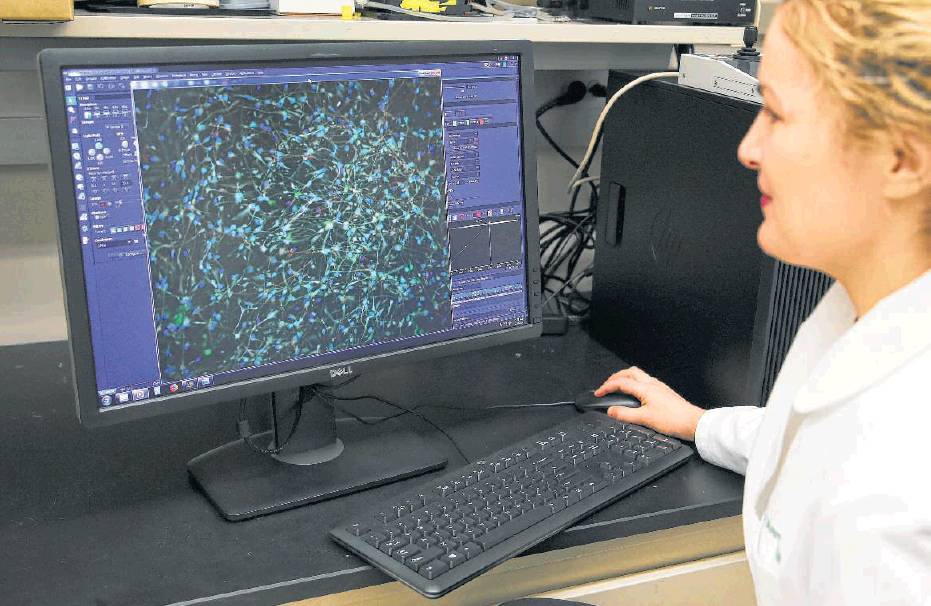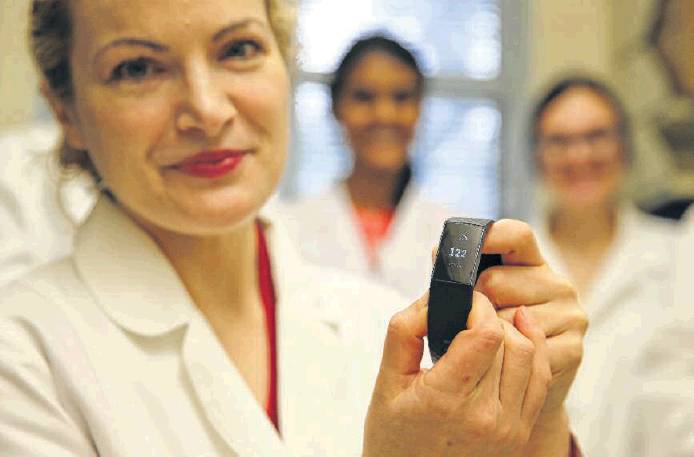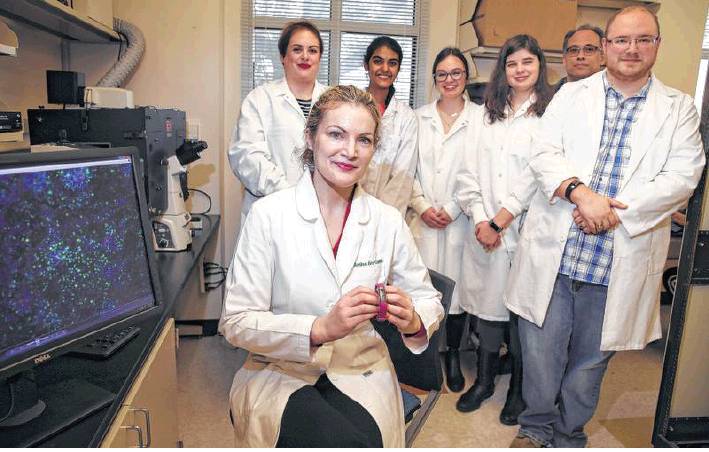Predicting disease progression
UTSA researchers’ project aims to track behaviors, test cells
By Lauren Caruba STAFF WRITER
Researchers at the University of Texas at San Antonio have embarked on an ambitious project that combines behavioral data with cellular testing, work they hope will shed light on the development of diseases such as dementia and Alzheimer’s.
The research, called the Quantu Project, seeks to predict the progression of neurodegenerative disease by tracking individuals’ day-to-day behaviors and physiological indicators. Participants will wear Fitbits, devices that provide a wealth of personal health information such as heart rate, daily steps and sleep patterns. That information will be compared against an individual’s cells, as extracted from blood samples.
Researchers hope to collect an enormous amount of data for the project by recruiting more than 100,000 local participants over the next five years. The pool will include healthy individuals, as well as people with cognitive conditions such as dementia or sleep disorders.
Information will be analyzed using computer models that will “predict individual people’s behavior and what someone who is starting to have cognitive decline’s behavior would be,” said lead researcher Amina Qutub, an associate professor in UTSA’s biomedical engineering department.
The goal, she said, is to identify how daily behavior correlates with neurodegenerative disease and its progression in the body.
“We’re mapping daily behaviors to the ability of new neurons to form for the same individuals,” Qutub said. “What our goal is to figure out is, is something that you’re doing on a daily basis changing your ability of your cells to repair?”
Researchers cannot expect participants to volunteer their brain cells. Instead, Qutub said, they will use cells taken from blood draws every six months. Working with UTSA’s Stem Cell Core, which conducts stem cell research, peripheral cells from a person’s blood will be extracted and injected with a solution that changes a cell’s gene expression. The process reprograms the cells to “form parts of functional brain tissue,” Qutub said.
If researchers could predict early changes associated with cognitive decline, Qutub said, there would be an opportunity to step in and provide treatment or adjust a person’s behavior.
“Can we pick up decline 10, 20 years before there’s any of the symptoms that would show up clinically?” she said. “Can we intervene at that point and even reverse what would happen?”
The Quantu Project team plans to partner with health institutions in the area to help recruit participants, collaborations that can give researchers access to additional information from clinical assessments and tests, Qutub said.
Dr. Sudha Seshadri, director of the Glenn Biggs Institute for Alzheimer’s and Neurodegenerative Diseases at UT Health San Antonio, said the medical field is increasingly recognizing the role of daily health information in getting “a complete picture at all stages of when a person is well and at risk for different diseases.” She said many neurodegenerative illnesses begin in the brain stem, affecting behaviors such as sleep and appetite that can be easily measured.
Seshadri said UT Health San Antonio plans to help recruit study participants with dementia, offering the opportunity to participate to patients and their caregivers.
David Pollet, chief operations officer for Academy Diagnostics Sleep Center, said the company plans to do the same with its sleep patients. He said research has shown that poor sleep, including less rapid eye movement, or REM, sleep, correlates with dementia and Alzheimer’s, making sleep patients relevant to the Quantu researchers.
Amount and quality of sleep “affects every part of the body,” he said, including cognitive and physical function.
Qutub said the research is made possible by the wide availability of wearable technology that can provide “information about your health every second,” as well as advancements in algorithms that can analyze vast amounts of data. It is also aided by the rise of apps that track people’s health, which have made people more comfortable monitoring and working with their personal health information, she said.
To volunteer as a participant in the Quantu Project, visit quantuproject.org.


